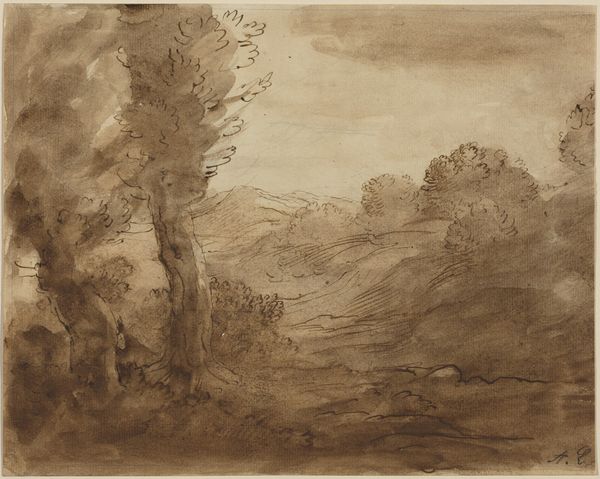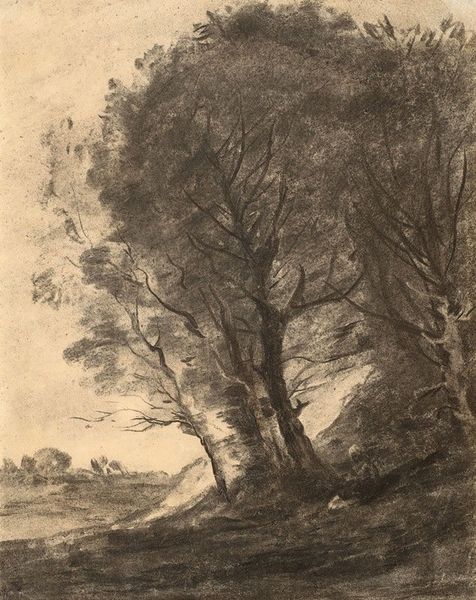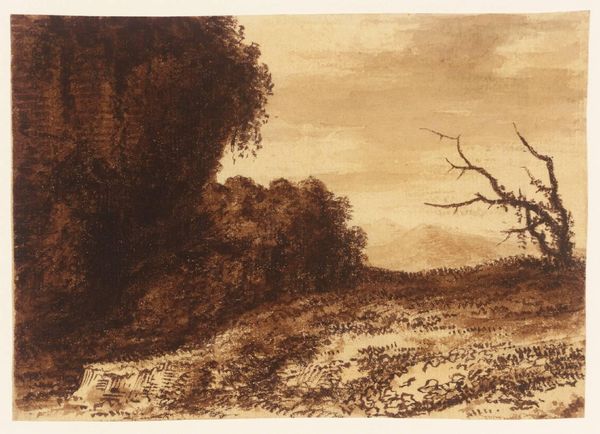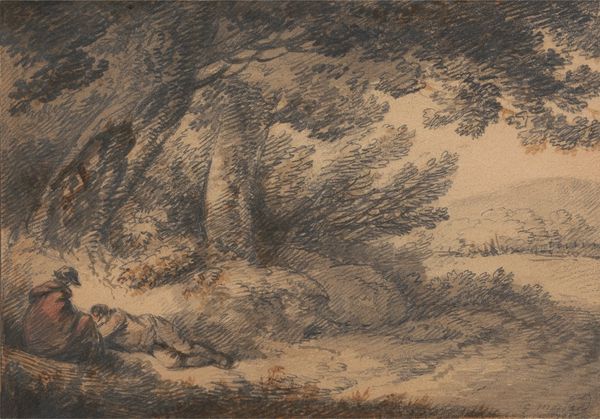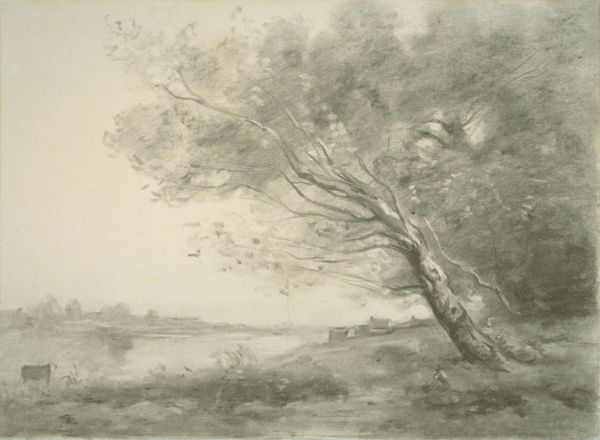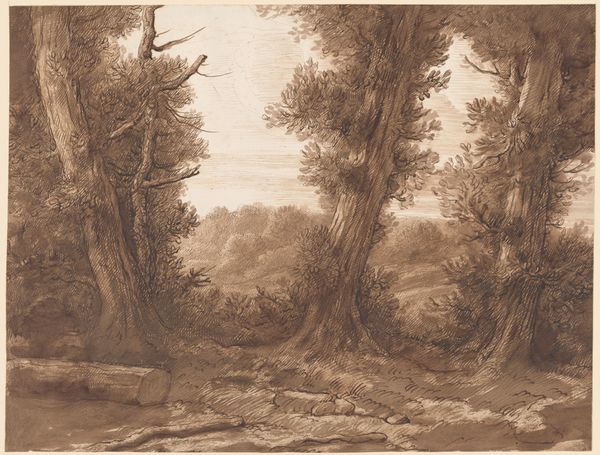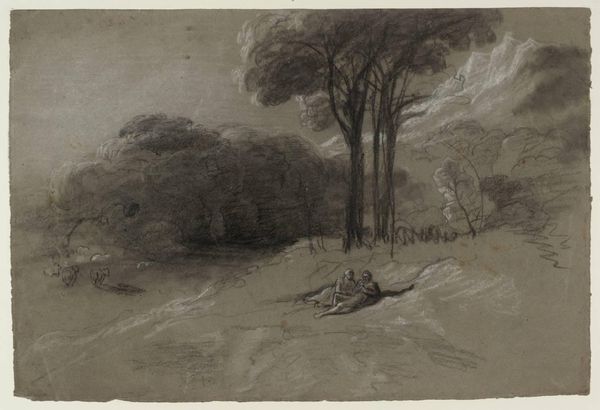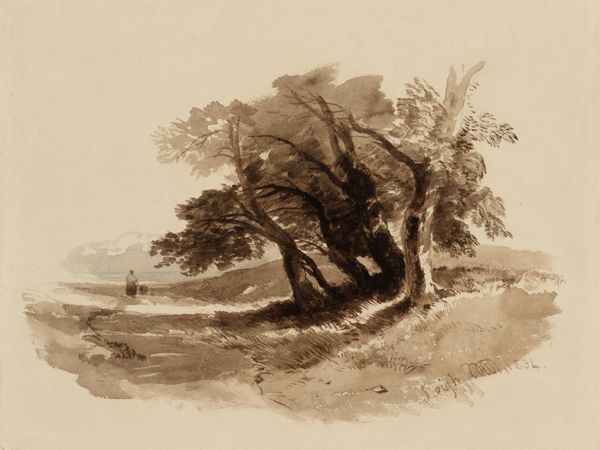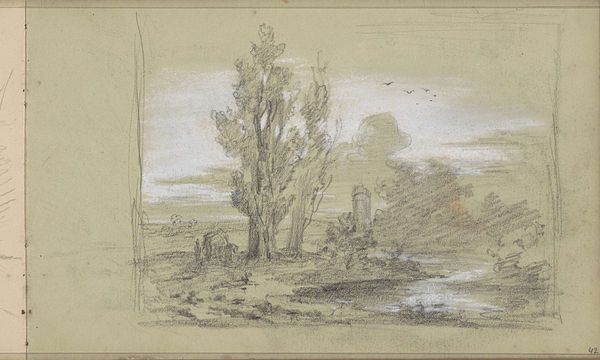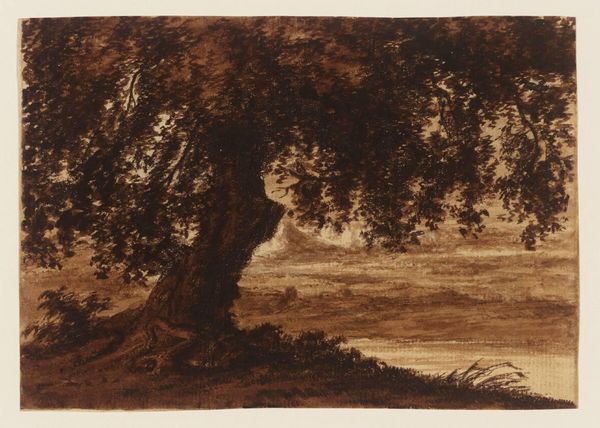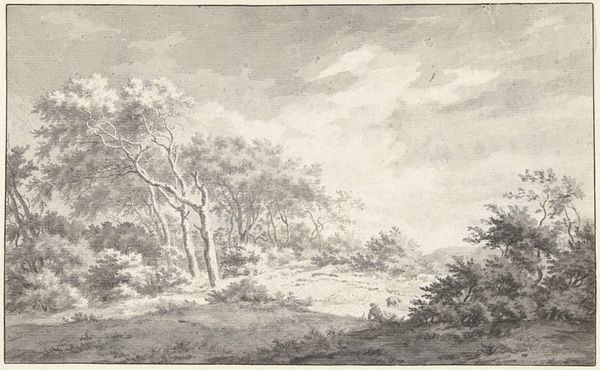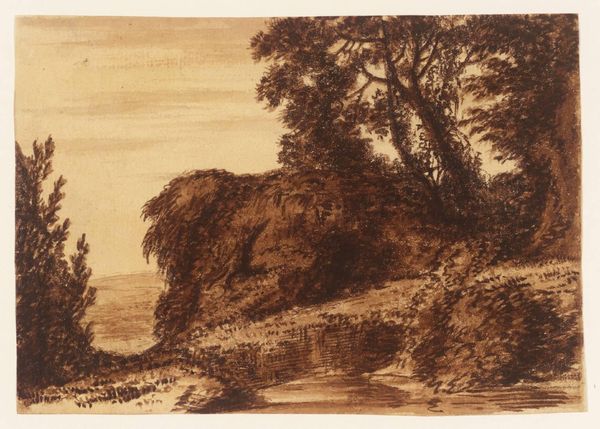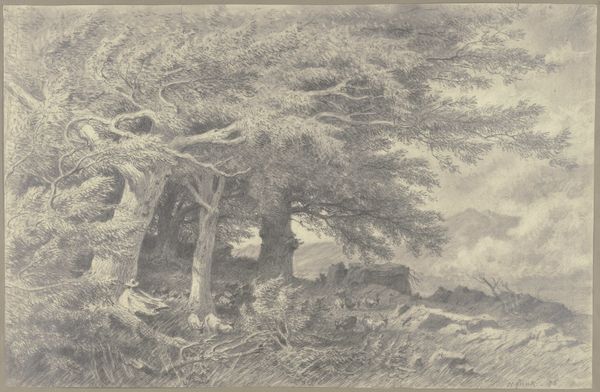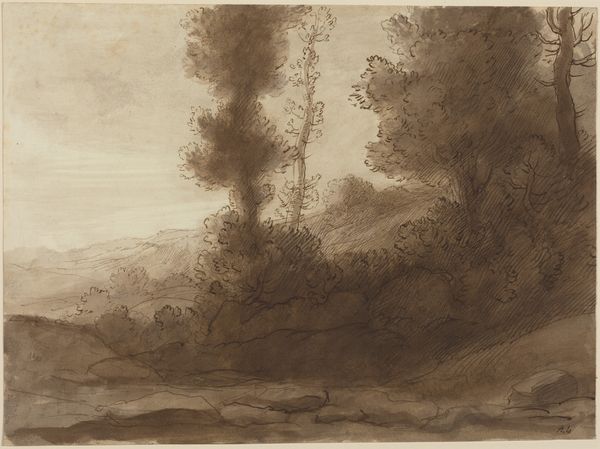
drawing, watercolor, ink, pencil
#
drawing
#
ink painting
#
pencil sketch
#
landscape
#
charcoal drawing
#
watercolor
#
ink
#
pencil drawing
#
romanticism
#
pencil
#
watercolor
Copyright: Public Domain: Artvee
Editor: This is David Cox’s “Warwick Castle,” from around the 1840s. It's a drawing made with ink, watercolor, and pencil. There's a real sense of transience, a moment caught in shifting weather. How do you interpret this work? Curator: Well, considering Cox's place in the Romantic tradition, it's crucial to unpack how this landscape operates within the sociopolitical context of its time. The fading grandeur of the castle, rendered in such delicate, almost melancholic washes, speaks volumes. It almost looks like an elegy. What do you think Cox might be elegizing? Editor: Perhaps the fading of traditional aristocratic power? The industrial revolution was rapidly changing Britain at this time. Curator: Precisely! Think about the enclosure acts and the displacement of rural communities. This isn't just a pretty landscape; it’s a commentary on power, land ownership, and the human cost of "progress." Notice the figures in the foreground, dwarfed by the landscape. How do you read their presence? Editor: They seem like observers, small and vulnerable against the vastness. Is Cox suggesting their insignificance? Curator: Maybe not insignificance, but a re-evaluation of humanity’s relationship to the natural world, especially in the face of industrial upheaval. The Romantic era grappled with these questions, and Cox, through his choice of subject and technique, adds his voice to that dialogue. Are we masters of our destiny, or simply swept along by forces beyond our control? Editor: It’s a much more charged image than I initially thought. It seems Cox is inviting us to think about progress. Curator: Absolutely. He’s pushing us to consider who benefits and who pays the price. Editor: This has made me appreciate the power of landscape art as social commentary. Curator: Exactly! It reminds us that art can be a powerful tool for understanding and challenging the dominant narratives of any period.
Comments
No comments
Be the first to comment and join the conversation on the ultimate creative platform.
